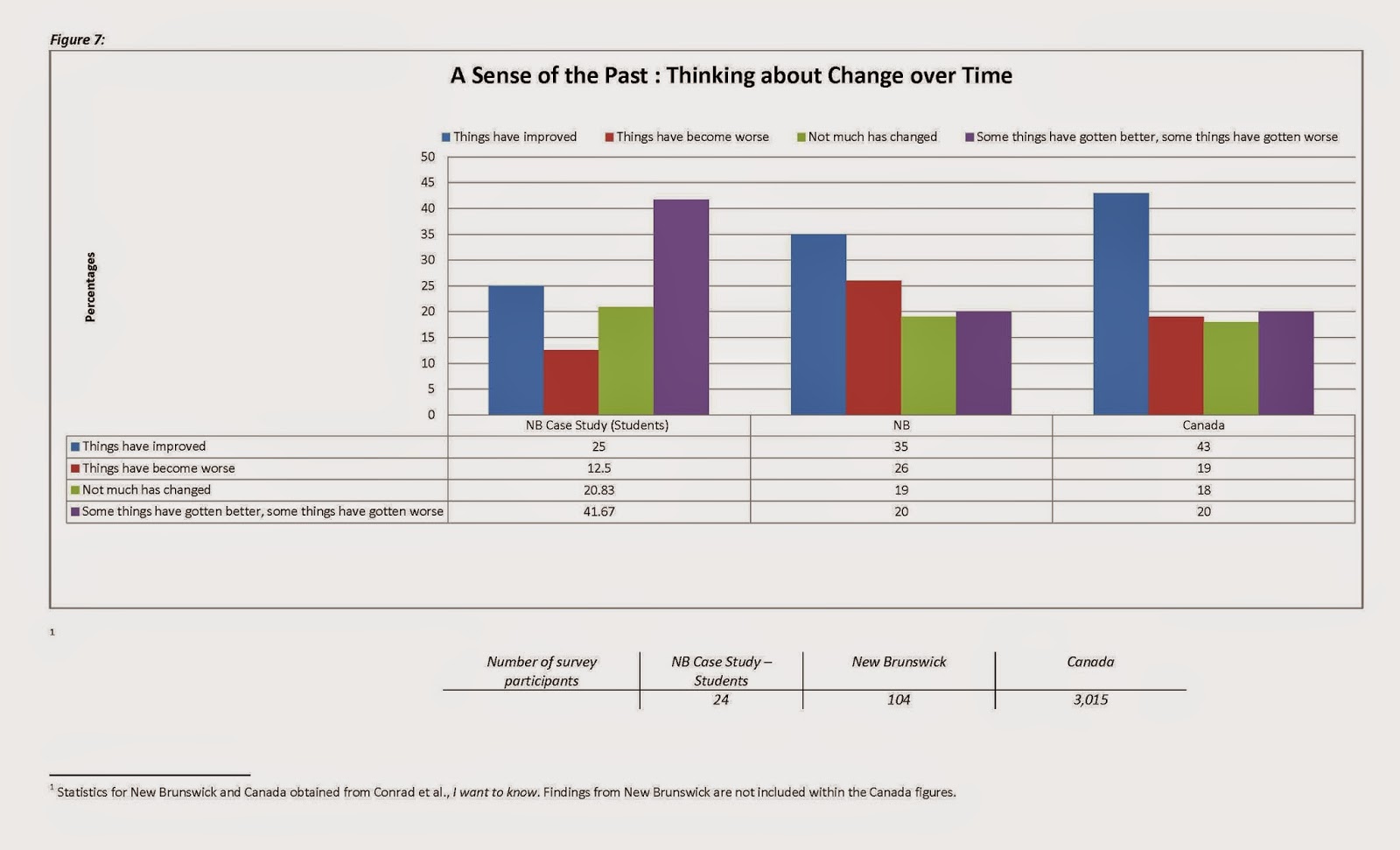Mapping the Historical Consciousness of 7th Graders
5 December 2014 - 1:00pm
I recently published a research note in the Journal of New Brunswick Studies, and as a graduate student who has devoted the past 5 years to exploring the phenomenon of historical consciousness, I am (needless-to-say) thrilled and honoured to see a small piece of my research published in a scholarly journal!
My findings provide an intriguing glimpse into an age group less commonly discussed in conversations around historical consciousness and historical thinking in Canada. The data was collected as part of a pre-survey that expanded upon the Canadians and their Pasts (2013) investigation with an entire class of Anglophone 7th graders. In working with this group of students, I had the privilege of learning a little bit more about their relationship with the past, and the narratives that they carry. Over a period of 15 weeks, we worked together to explore a material history framework for historical thinking in museums, which served as a cultural tool for deepening students’ historical consciousness.
As Stéphane Levesque (2014) has pointed out, “the study of historical consciousness makes it possible to understand how people use the past.” For the students participating in this inquiry, it was evident that they initially used the past to situate themselves within a Canada narrative of privilege and war. These “broad pictures” for remembering represented common themes that (just as Levesque has indicated) served as “backdrops” for acquiring new knowledge. For these students, their themes of privilege and war were predominantly optimistic.
Somewhat in contradiction to this optimism, however, many of the students parallelled this schema with more pessimistic perceptions about change over time. In this regard the students were very unlike adult samplings in the larger Canadians and Their Pasts study. Hence, rather than perceiving things as getting better over time, nearly half (42%) of the students recognised progression as a contradiction. For these students, while technology had made life easier, the resulting pollution and conflict had also made life worse. In this sense, students' narratives of privilege seemed to be somewhat at odds with their beliefs in change over time.
[Click on the graph to increase the size].
What is perhaps even more interesting about this dataset, is what it reveals about students’ beliefs around historical knowledge. For the majority of students (63%), they believed that whenever anyone disagrees about the past it is simply a matter of consulting with experts, or secondary sources, to find out what happened. In this sense, students demonstrated a belief in knowledge as something that can be found—by simply asking an expert or consulting a secondary source.
At first glance, such a strategy for resolving disagreements about the past might seem very effective. What is problematic about this approach, however, is that students did not see themselves as part of a community of historical inquiry. Instead, history was something that someone more knowledgeable did for them. As a result, all they had to do was know how to find it.
As I have explained in my previous blog posts (September and March 2014), by engaging students in active historical thinking, using artifact sources as starting points for critical historical inquiry, participants in this study came to adopt more complex understandings around the nature of historical knowledge. In this sense, students came to see history as a narrative that is re-constructed (from historical evidence), rather than simply found.
I invite you to read the full research note as it appears in the current issue of the Journal of New Brunswick Studies.
Credits:
Conrad et al (2013). Canadians and Their Pasts. Toronto: University of Toronto.
Levesque, S. (2014). "Between memory recall and historical consciousness: Implications for education". Public History Weekly. Web.
Wallace-Casey, C. (2014). "7th graders and thier pasts: A New Brunswick case study". Journal of New Brunswick Studies. Web


